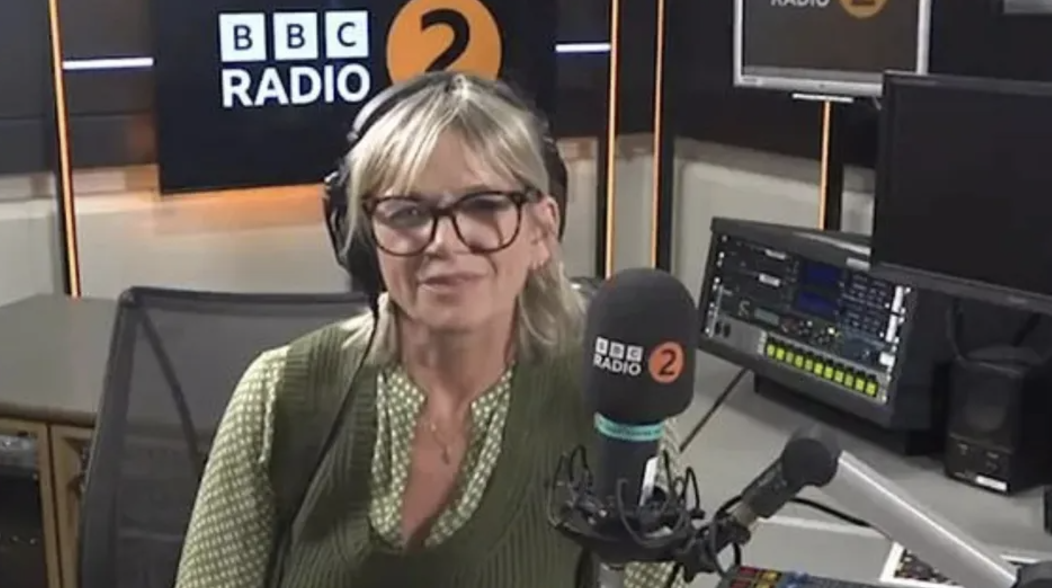I have long harboured a dream to visit an evidence-based spa. I very much enjoy sybaritic relaxation, but the infrequency of my spa-visiting is directly related to the rage induced when claims for the effectiveness of various administered “therapies” are made, usually when in a prone and near naked state. I like massages, scented oils, warm towels and luxuriance, but I do not like pseudoscience and fake claims — and I definitely don’t want to be wasting money on it.
Radio DJ Zoe Ball has resigned from her Radio 2 show after writing that she has been having significant problems with her TMJ — the temporomandibular joint, which connects the jaw to the skull. Pain from the joint is relatively common and can be very unpleasant, leading to headaches and often painful chewing. The condition is sometimes connected to anxiety and stress. She has reportedly visited a clinic that offers “lymphatic drainage massage” and thanked them for helping her. The clinic also provides “cup therapy”, which is in vogue, with famous people on red carpets revealing the circular marks on their flesh that result from it — vacuum suction is applied to skin via “cups” with the intention of removing “toxins”.
People should be able to spend their money how they want, and many people find massage soothing and a good distraction from pain. But look online, and you will find vast claims made by multiple vendors — and that is my issue. While some people can afford, and be willing, to pay for things that offer a short-lived placebo effect, it would be fairer to explain that is, in fact, what they are purchasing. (And there is some evidence that beneficial placebo effects can still be generated even when the person is told they are being given a placebo. In other words, it’s possible to be transparent and still feel a bit better). Many clinics offer lymphatic drainage massage — which sounds science-y — and indeed the lymph system is one of the most under-appreciated parts of our anatomy, continually and quietly protecting us from infections.
However it is touted on multiple beauty therapy websites as a means to “reduce the signs of ageing”, again via a release of “toxins”. (The lymphatic system will carry on doing that for us, regardless). A variety of hand-held implements, including rollers made of jade, are available for doing the “lymphatic massage” job if one does not wish to visit a therapist. (This is quite different from the physical treatments for lymphodema, a condition where the lymphatic system is blocked, resulting in limb swelling, which can be a consequence of some types of cancer surgery.) And again, there is a distinct lack of evidence that this can help pain.
But it is also true that neither does traditional medicine have great answers, although physiotherapy can help. There are some ways to mitigate the pain, such as “occlusal splints” — a mouthguard usually worn at night — but the evidence quality on them is poor. Meantime, a self-management programme, designed to help people control their physical and mental response to pain does seem to have an impact. But it is far better to be honest about the limitations of what’s on offer. First, interventions that can’t help you can only harm you (either financially or by side effects) and second, if we keep doing the same thing that doesn’t work, then we will never get any better treatments for anyone.
So what’s the problem, then, if people take an alternative path? If a placebo effect works, or people get temporary relief from pain, isn’t that a good thing? Yes and no. I want the same standards for all — whether it’s conventional medicine or labelled “alternative” (and as Richard Dawkins once said, “when alternative treatments are shown to work, they are no longer called alternative medicine, just medicine”). People with chronic pain are often suffering badly. If we are sold treatments without decent evidence of benefit and with promises beyond what can be achieved, we are potentially exploiting people, whether it’s labelled “alternative” or not.
Truth be told, I dream of a spa where I am told, not that toxins will be removed and energy fields will be rebalanced, but that this should smell nice, feel nice, and just relax and enjoy it.











Join the discussion
Join like minded readers that support our journalism by becoming a paid subscriber
To join the discussion in the comments, become a paid subscriber.
Join like minded readers that support our journalism, read unlimited articles and enjoy other subscriber-only benefits.
Subscribe